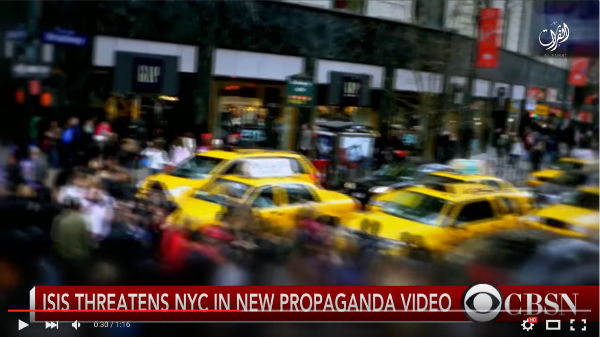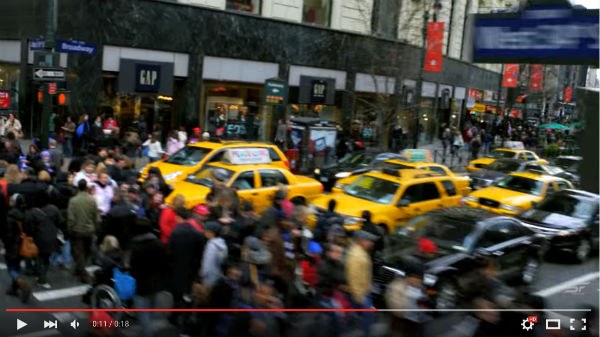When Bernie Sanders, in preparation for Saturday’s Democratic presidential debate, considered how he should field questions on ISIS in the wake of the Paris attacks, one point must have been obvious: he shouldn’t make President Obama’s blunder of talking about containment.
Instead, Sanders opted for a revised version of George Bush’s declaration right after 9/11: “My administration has a job to do and we’re going to do it. We will rid the world of the evil-doers.”
Replace “my administration” with America leading the world, and switch “evil-doers” for ISIS and you get from Sanders: “Together, leading the world, this country will rid our planet of this barbaric organization called ISIS.”
If after 9/11 many Americans were too traumatized to think straight and thus hesitated to dismiss Bush’s impossible promise, Sander’s audience already aware that he’s unlikely to win the Democratic nomination, let alone become president, couldn’t have been too surprised about being offered this kind of empty rhetoric.
After all, when it comes to his inability to present a credible policy on how to deal with ISIS, Sanders is far from alone.
Consider, for instance, the “expert” opinion of political scientist, Stephen Walt, less than six months ago:
Despite its bloodthirsty and gruesome tactics, the Islamic State is not, in fact, a powerful global actor. Its message attracts recruits among marginalized youth in other countries, but attracting perhaps 25,000 ill-trained followers from a global population of more than 7 billion is not that significant. It may even be a net gain if these people leave their countries of origin and then get to experience the harsh realities of jihadi rule. Some of them will realize that the Islamic State is brutal and unjust and a recipe for disaster; the rest will be isolated and contained in one spot instead of stirring up trouble at home.
That kind of assessment, along with overly optimistic reports from his own field commanders, led Obama — just hours before ISIS let loose mayhem across Paris — to assert:
From the start our goal has been first to contain, and we have contained them.
Clearly, the containment strategy isn’t working.
The fact that containment could even be presented as an option is indicative of the fact that too often, what is presented as strategy in Washington, is too often little more than branding.
By a process of what could be called rhetorical logic, a tried and tested solution — the Soviet Union was successfully contained — gets repackaged for ISIS, a much smaller power. Containment worked then, so it can work now — so goes the logic.
But for containment to work, the Soviet Union and ISIS would by nature if not size, need to be comparable entities — which obviously they are not.
ISIS is a shapeshifter. As a fledgling state it might be contained, but as an inspirational force it penetrates the globe.
Almost exactly a year ago, ISIS issued the following warning:
This is a message to all the enemies of Islam and specifically France…. As long as you keep bombing you will not find peace. You will even fear travelling to the market. I call my brothers in France who have not made Hijra, those who are unable to make Hijra, and those who do not possess the means to make Hijra. Know that Jihad in this time is fard-‘ayn (obligatory on all).
For those fixated on the malevolent force of Western power, the simple solution to the threat posed by ISIS is to comply with its request: stop bombing — as though Western meddling is the only fuel that sustains the organization’s existence.
What this perspective overlooks is the fact that many of ISIS’s enemies benefit from the group’s continuation.
As failed states, Syria and Iraq have both moved more closely within the orbit of Iranian power. The growth of ISIS has further empowered the generals who want to be seen as indispensable protectors of scattered Shia populations.
Likewise, Vladamir Putin — who wants to be seen as a defender of national sovereignty and a counterweight to Western intervention — is using ISIS as a pretext for buttressing the Assad regime.
Lastly, Assad himself needs ISIS to reinforce the argument that in Syria there are only two choices: stability or chaos.
In the West, what most narratives miss when portraying ISIS as a product of external forces is that it now has a life of its own.
ISIS can’t easily be contained. It can’t be bombed out of existence. In the battle on the ground to reclaim territory, city by city, the result so far has been that each city that gets liberated also gets destroyed. The idea that it can be strangled by cutting off external support, overestimates the size of that support and underestimates the degree to which ISIS is entangling itself in local communities.
What is clear, is that ISIS presents a problem that will not go away. And as it bombs passenger aircraft and sends out operatives to conduct massacres in capital cities, those who thought it posed little risk of “stirring up trouble at home,” have dramatically been proved wrong.
Stephen Walt now has nothing more to say about containment:
What made the invasion of Iraq especially foolish was the fact that it had nothing to do with al Qaeda nor were there any weapons of mass destruction.
What’s foolish now is to compare a few hundred fighters holed up in caves in Afghanistan with an army of tens of thousands ruling over a population of six million, whose home address is not in dispute.
The response to the Paris attacks must be “vigorous”?
The effort here has nothing to do with ISIS but instead that required by an analyst when spinning away from his recent advice that we could “patiently wait” for ISIS, through its excesses, to be undermined from within.
Indeed, in Walt’s vivid imagination, ISIS might even hang on to power long enough to secure a seat at the United Nations!
Assume the Islamic State is contained but not overthrown and that it eventually creates durable governing institutions. As befits a group built in part on the former Baathist thugocracy, it is already creating the administrative structures of statehood: levying taxes, monitoring its borders, building armed forces, co-opting local groups, etc. Some of its neighbors are tacitly acknowledging this reality by turning a blind eye to the smuggling that keeps the Islamic State in business. Should this continue, how long will it be before other countries begin to recognize the “Islamic State” as a legitimate government?
This might sound preposterous, but remember that the international community has often tried to ostracize revolutionary movements, only to grudgingly recognize them once their staying power was proven. The Western powers refused to recognize the Soviet Union for some years after the 1917 Bolshevik revolution, and the United States did not do so until 1933. Similarly, the United States did not establish full diplomatic relations with the government of the world’s most populous country — the People’s Republic of China — until 1979, a full 30 years after the PRC was founded. Given these (and other) precedents, can we be certain that the Islamic State might not one day become a legitimate member of the international community, with a seat at the United Nations?
The illusion created by the term containment is not only that a strategy exists where there is none, but that the problem is located elsewhere while we remain safe at home.
But in Vienna yesterday, U.S. Secretary of State John Kerry correctly said: “The impact of this war bleeds into all nations.”
(That graphic and realistic observation was coupled with an improbable forecast: that elections will take place in Syria in 18 months.)
For the last four years, much of the West has chosen to look the other way, quietly taking comfort in the distance that separates our own homes from Syria’s misery.
And even now, as ISIS brings the violence home, for some, this will provide a justification to widen the divide, shut out refugees and reinforce an isolationist and xenophobic mentality.
But disengagement and retreat, as strongly as we might wish otherwise, will not make this problem go away.




